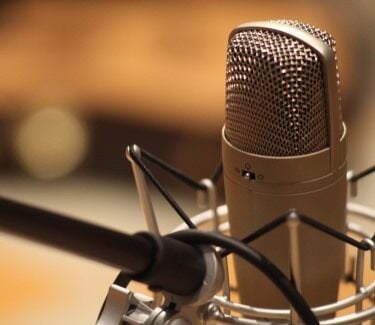Coyote J. Calhoun gets Fired from Z-102, Live On The Air in 1988 when music format changed from Rock and Roll to Pop
Current, Historic, Revealing, Informative...
|
|

Story by Inside Radio
Across podcasting, efforts are underway to help bring more diverse voices into the medium. Now the industry is getting some help in that endeavor from the largest African American owned-and-operated media company. Urban One is teaming with Sounder, the podcast management and monetization platform, on research geared toward ensuring that all audio content creators have equal access to monetization opportunities.
In a joint announcement, Urban One and Sounder say the research will specifically address the industry’s limited brand safety technology capabilities for audio content created by African Americans and other creators. The ultimate goal is to develop new solutions that enable advertisers to sponsor BIPOC (Black, Indigenous, and people of color) audio content at a higher rate and with greater confidence.
Black podcasters have faced a bigger challenge than most others as marketers have put more focus on brand safety. The parameters they draft disproportionately flags and restrict content created by diverse voices due to inaccurate classification and no-buy lists that many find discriminatory.
“Corporate America has always been comfortable with safe Black people and that’s not what a lot of us are,” Black Effect creator Charlamagne Tha God told a Podcast Movement conference panel. Others have aired similar complaints.
As part of the new research partnership, Sounder will work closely with Radio One and Reach Media, Urban One’s audio divisions, as well as the new Urban One Podcast Network, to analyze a variety of content from its catalog and create a report identifying strengths and challenges facing audio ad technology in classifying diverse media. The results will be used to refine Sounder’s brand safety and suitability solutions. The companies say the results will be a new, fairer standard for the industry.
Urban One Chief Revenue Officer Josh Rahmani says it is part of his company’s long-running mission to educate advertisers and the broader industry on the evolving cultural landscape of Black America. “Through this work we hope to bring awareness of Black culture and its nuances to the industry at large and support an ecosystem of the diverse voices that drive mainstream culture,” he said in a statement.
Current brand safety tools often present an all-or-nothing option to clients, which Black creators say misrepresent their content and short-change them on ad buys in the process. Through their research Urban One and Sounder aim to develop what they describe as a “more nuanced approach” that will refine speech classification accuracy and sensitivity, and in the process restore parity to the ad buying process while also improving performance for clients.
“Sounder was founded on the belief that we could help diverse voices connect with listeners who cared about what they had to say. We also believe that these voices should have the same ability to monetize and fund their content,” said Kal Amin, co-founder and CEO of Sounder. “Yet suitability and brand safety can’t be optimized until technology catches up to culture and holistically supports a thriving, diverse world of audio content. Our mission to transform audio insights includes redefining the brand safety status quo with contextual intelligence tools to support diverse creators.”
Black Podcast Listening Growing
The focus on podcast advertising diversity comes as listenership also diversifies. Edison Research’s Black Podcast Listener Report showed that listening among African Americans soared 53% between 2020 and 2021 as a growing variety of shows targeting Black listeners attracted more users of the media. It said weekly listenership rose to 26% among Blacks, up from 17% in 2020. And more than 12 million Black adults report listening to podcasts each month, of which 42% say they have been listening to podcasts for a year or less.
In terms of advertising, Edison’s survey also found that four in ten African Americans also said that they are more likely to buy a product they hear advertised on a podcast they listen to. And 84% are either “very” or “somewhat” likely to consider a brand. When shows come from Black creators, the Edison data showed those affinity levels are even stronger.
“We’ve been on a journey of trying to get brands to understand the Black voice. That’s what it all boils down to,” Black Effect President Dollie Bishop told Podcast Movement. “Everyone is very receptive, but it’s a process,” she said. “We’re on a mission to show the value of the Black voice, no matter what that voice is speaking about.”